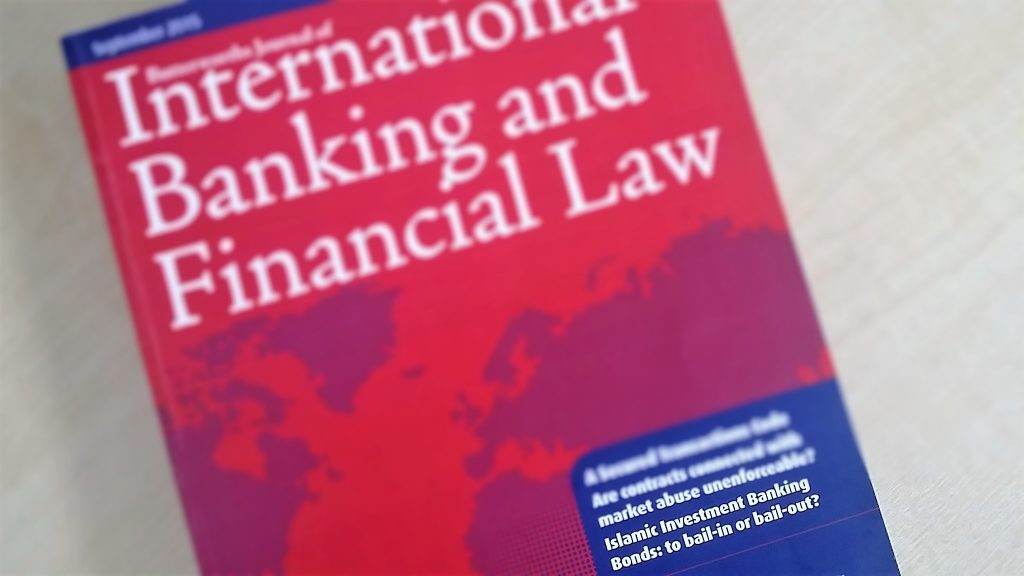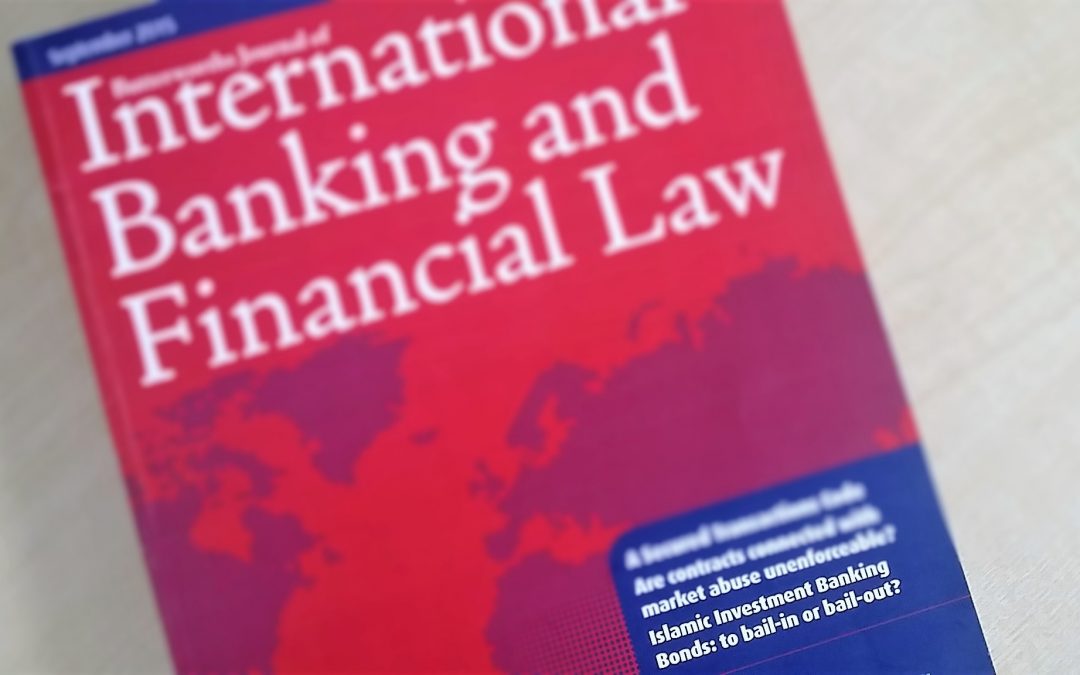To Bail in or Bail out – That is the question that I addressed after being commissioned to write an advisory article on investment banking and the EU Bank Resolution and Recovery Directive. The focus of the article was on Islamic Banking and more specifically Islamic banks in the UK.

Journal of International Banking and Financial Law cover Islamic Investment Banking Bonds Bail in or Bail Out Article by Tahir Ashraf banking barrister
The Bail In Article Issues
The article addressing the bail in question published on 4th September 2015 by the Butterworths Journal of International Banking Law (JIBFL) offers a brief overview of the issues faced by sukuk investors and Islamic banks concerning Sharia compliance in light of the EU Bank Recovery and Resolution Directive. It does not analyse the various sukuk structures, but instead, provides an easy to follow overview to highlight the definition of Islamic bonds followed by the underlying defining principles to which regard must be had for the bonds to be ethical and compliant with Sharia.
Bail Out – Pre Bail In Rules
The articles talks of how banks such as Northern Rock and Lloyds plc have in the global financial crisis been bailed out. Bail-out in essence is a capital injection of taxpayer funds from the Treasury. The twist of the BRRD is that as a matter of English and EU law, an Islamic bank with a UK base is subject to the “bail-in” provisions of the BRRD, as opposed to the previous position of a bail-out. After this the article addresses the powers granted to the regulatory body, namely the Bank of England and how in practice some of these powers might be exercised.
Bail in
The bail-in mechanism empowers the Bank of England (BoE as the relevant resolution authority) to intervene and write down the Islamic bank’s liabilities converting funds from existing creditors to prevent failure.
The BoE is able to exercise its power to “resolve” a bank that has failed or is likely to fail and is not reasonably likely to be able to recover and no other action will be taken to prevent the bank from failing. In practical terms a key objective of the BRRD is to prevent a “too big to fail” scenario.
I also pose the question of whether there is too much power in the hands of the BoE. That said, when viewed from the perspective of insolvency, investors are likely to be better off than in the event of a default leading to liquidation. However, only time will tell whether the exercise of the power to resolve is used in a capricious and arbitrary manner. Whilst in theory the application of the BRRD into contracts seems like a great plan for conventional bond issuances, the position must also be considered for Islamic bond holders from the perspective of the underlying defining principles.
The link to To bail-in or bail-out Islamic Investment Banking Bonds. Tahir can be contacted for Banking compliance regulatory and other matters here.
